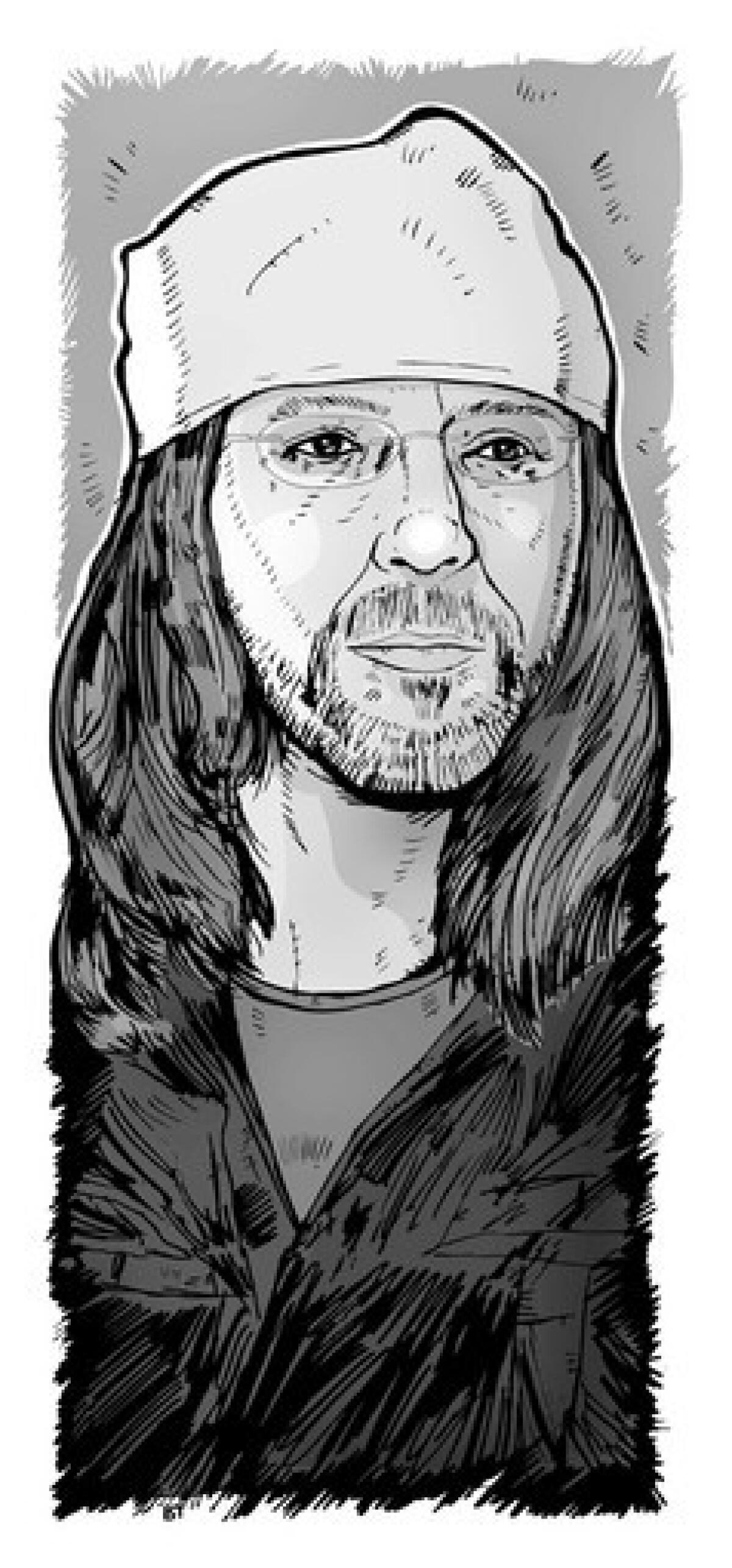‘Although of Course You End Up Becoming Yourself: A Road Trip with David Foster Wallace’ by David Lipsky

- Share via
Although of Course
You End Up Becoming
Yourself
A Road Trip with
David Foster Wallace
David Lipsky
Broadway: 352 pp., $16.99 paper
David Foster Wallace dispenses exactly three pieces of writing advice in “Although of Course You End Up Becoming Yourself,” David Lipsky’s transcript of the five days he spent with the author on his 1996 “Infinite Jest” book tour. The last of these is as follows: “The key to writing is learning to differentiate private interest from public entertainment.”
That’s good advice, and in this book, Lipsky has ignored it at his peril.
On the face of it, “Although of Course” has the makings of fine public entertainment: a media-shy, immensely talented novelist suddenly forced to confront his fears when his Bible-sized masterpiece catapults him to the heights of success; the glossy magazine reporter to whom he’s speaking out of obligation to his publisher; the time they spend together, driving, eating at roadside diners, building trust and having expansive conversations. The problem is that in presenting all this as little more than a lightly edited transcript of his and Wallace’s tape-recorded conversations, Lipsky essentially cedes his right to make it into a coherent narrative. The result is a book frequently compelling for its bracing candor and idiosyncratic quirks that fails to live up to its promise.
To be sure, Wallace fans will devour the quips and behind-the-scenes stories found throughout the book. It’s a rare look at the reclusive author in all his mundanity: berating his dogs for defecating on the rug, telling waiters that he and Lipsky aren’t on a date (because he fears homophobic Midwesterners) and repeatedly spilling his can full of tobacco spittle. Wallace’s folksy-but-erudite run-on sentences will be familiar to anyone who’s read him, and they lend his presence a delightful immediacy and authenticity. He comes across as an Everyman genius, rhapsodizing McDonald’s fries while casually dropping epigrams (“The main job of entertainment is to separate you from your cash.”) and lobbing uncensored insults at the likes of Michiko Kakutani and John Updike. It’s almost disturbing to hear someone with a mind of Wallace’s caliber repeatedly tell Lipsky, in all sincerity, that he really isn’t that smart, “but I work really hard.”
“Although of Course” offers much more than just the quotidian charm of a famous man’s private life. Lipsky had the good fortune to win Wallace’s trust when, suddenly famous, he was forced to confront deep misgivings about commercial success and the specter of depression and suicide that had long lingered over him. Lipsky proves an adept interlocutor, and at their best these conversations give Wallace the chance to think out loud and personalize his great themes: addiction and celebrity and the isolation both could bring.
There’s a beautiful 50-page stretch when, exhausted from days of travel, Lipsky and Wallace decompress with an all-nighter in the author’s apartment. Without warning, Wallace launches into the story of his career to that point, talking to the recorder like it’s a therapist. We hear it all, from publishing his 500-page first novel while still a student to watching his second book tank and ending up on suicide watch, after which he had to take humiliating jobs to make ends meet before finally getting just enough of a cash advance to finish “Infinite Jest.” The story reaches a climax when Wallace says: “I have this thing about takin’ money before it was done. I felt like it was sort of, it was jumping off the bridge. Because once I’d taken money for this thing, I knew I had to finish it.
“And, um, it was, I think after going into McLean’s in ‘89, it was the bravest thing I’d ever done. Because every cell in my body didn’t want me to do it. But I also was just -- I knew I was going to finish the thing. I mean, the thing was alive for me by then.”
It’s a scintillating moment, with Wallace revealing just how close “Infinite Jest” came to never having been written. But rarely does anything else in the book reach this level of narrative urgency. Rather, “Although of Course” is, essentially, a very, very long conversation, one that was never meant to be published in such a form. Lipsky tries to fix this with occasional post hoc interjections, but they’re insufficient and obtrusive.
Compared with his 2008 Rolling Stone piece on Wallace -- a perceptive deconstruction of the author’s suicide in which Lipsky synthesizes quotes from these tapes, original research and interviews with Wallace’s family and friends -- “Although of Course” feels half-baked. Though these interviews will be manna to fans and biographers (and the latter group, especially, can be glad that Lipsky held onto these tapes), there’s not enough here on which to hang a book.
Somewhere in these five days lies a tragic portrait of an author who reached the pinnacle of success, only to find that it was his undoing. “Although of Course” offers a glimpse, but the full story still remains to be told.
Esposito edits the Quarterly Conversation, a Web magazine of book reviews and essays.
More to Read
The biggest entertainment stories
Get our big stories about Hollywood, film, television, music, arts, culture and more right in your inbox as soon as they publish.
You may occasionally receive promotional content from the Los Angeles Times.










